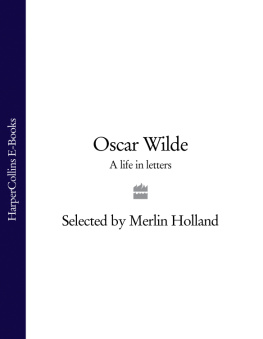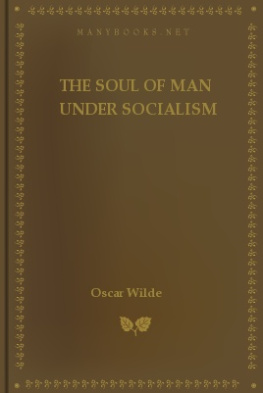Contents

IN PRAISE OF
DISOBEDIENCE

WITH AN INTRODUCTION
BY NEIL BARTLETT
SELECTED AND
ANNOTATED BY
MARK MARTIN

First published by Verso 2018
Introduction Neil Bartlett 2018
All rights reserved
The moral rights of the authors have been asserted
1 3 5 7 9 10 8 6 4 2
Verso
UK: 6 Meard Street, London W1F 0EG
US: 20 Jay Street, Suite 1010, Brooklyn, NY 11201
versobooks.com
Verso is the imprint of New Left Books
ISBN-13: 978-1-78873-033-4
ISBN-13: 978-1-78873-035-8 (US EBK)
ISBN-13: 978-1-78873-034-1 (UK EBK)
British Library Cataloguing in Publication Data
A catalogue record for this book is available from the British Library
Library of Congress Cataloging-in-Publication Data
A catalog record for this book is available from the Library of Congress
Typeset in Fournier by MJ & N Gavan, Truro, Cornwall
Printed in the US by Maple Press
Several plays have been written lately that deal with the monstrous injustice of the social code of morality at the present time. It is indeed a burning shame that there should be one law for men and another law for women. I think that there should be no law for anybody.
Oscar Wilde, discussing A Woman of No Importance
CONTENTS
I n 1889, in the course of a magazine article about a then-infamous nineteenth-century poisoner called Thomas Griffiths Wainewright, Oscar Wilde offered up the following thoughts on how one should and shouldnt read history:
I know that there are many historians, or at least writers on historical subjects, who still think it necessary to apply moral judgements to history, and who distribute their praise or blame with the solemn complacency of a successful schoolmaster. This, however, is a foolish habit, and merely shows that the moral instinct can be brought to such a pitch of perfection that it will make its appearance wherever it is not required. Nobody with the true historical sense ever dreams of blaming Nero, or scolding Tiberius, or censuring Caesar Borgia. These personages have become like the puppets of a play. They may fill us with terror, or horror, or wonder, but they do not harm us. They are not in immediate relation to us. We have nothing to fear from them. They have passed into the sphere of art and science, and neither art nor science knows anything of moral approval or disapproval.
Well, now that Wilde has himself become an historical personage, should we approve of him, do you think, or disapprove? What kind of relation might he now stand in, in relation to us, so many years after his death? Most importantly, do we still have anything to fear from him?

Of course there was once a time when that last question would have had a very clear answer. In May 1895, which was when Wilde was convicted on the charge of gross indecency with men and sentenced to two years hard labour, both society in general and Society in particular would have agreed that the world had a great deal to fear from him. Indeed, the consensus view on Wilde that May was that he was a man who deserved to be punished not just for any particular acts he might have committed but rather for the very fact of his existence not so much for anything he had done, in other words, as for what he simply was. The Marquess of Queensberry, his nemesis, wasnt really joking when he purportedly once confronted Wilde in his own house with the words I do not say you are it but you look it, which is just as bad. As far as the press, the judiciary and large numbers of the public were concerned, Oscar Wilde was a man who quite literally embodied the challenges he presented to the moral, political and social norms of his culture, and that was why his body had to be locked away out of sight in a prison.
The usual explanation for the extraordinary vilification to which Wilde was subjected during and after his three separate trials that spring was that it arose from the fury of a public who believed they had been thoroughly duped. Up until the moment of his arrest this narrative argues most people had no idea at all what kind of man Oscar Wilde really was. He might have been well known as a professional controversialist, one who used deliberately shocking stylings and phrasings in order to court publicity, but as far as his reading and theatre-going public was concerned he was still a charming and erudite married man with a pretty wife and two lovely children. After all, he had three comic melodramas running simultaneously in Londons West End, all of which ended albeit after some marvellously entertaining observations on its many challenges with the exaltation of marital happiness as an achievable ideal. No wonder then that when the author of these plays was suddenly revealed to be a long-term sexual criminal and of the very worst kind, for he had strayed across the agreed boundaries of class as well as those of gender his public was outraged. This same narrative usually then goes on to show how from this nadir of ugly Victorian moralism Wilde has been the beneficiary of a century-long process of social rehabilitation. This rehabilitation has come about (so the story goes) largely because of Wildes own unconquerable personal genius, but the process has been very definitely aided and abetted along the way by our own noble and somehow inevitable shedding of Victorian prejudices, until he has now once again become both a major box-office attraction and a cultural icon of the most life-enhancing kind. It is almost as if he has been returned to the celebrity and general esteem of the months immediately before his arrest, with the additional kudos of now being sanctified as an unwitting early martyr on the long march towards sexual liberation.
Well, this narrative has a certain charm, but it withers at the first touch of Wildes art at a first reading, for instance, of this anthology. As the prose collected here so boldly demonstrates, Wildes challenges to the status quo of his culture were public, not private. His radical sympathies and strategies, if indeed they were ever hidden, were hidden in plain sight. If his work dazzles, it is with the light reflected from the barely concealed razors embedded in the honey of his language. If it shocks, it does so as often with outrage as with laughter. If it entertains, it only does so in order to lead us into decidedly dangerous territory. Its risks are all consciously taken. To adapt the well-known saying once famously plagiarised by Shakespeares Polonius, it is surely bravery that is the soul of this particular wit.

Lets start with the first piece in this anthology, and with its title (Wilde is great with his titles, by the way; they always tell you almost everything you need to know). The Soul of Man under Socialism surely thats not the kind of title one expects from the famously witty Mr Oscar Wilde? Certainly not, if one imagines him to be a West End dramatist primarily concerned with the bon mots of the upper and upper-middle classes. But youd be wrong to be surprised. Wilde was the contemporary of John Ruskin, William Morris, Edward Carpenter (whose stirring anthology Chants of Labour he had reviewed three years before The Soul of Man under Socialism was published), George Bernard Shaw, the Webbs, Peter Kropotkin, Friedrich Engels and Karl Marx, and all of his writing all of it, the journalism, the essays and the plays takes as its starting point the assumption that the members of his audience are well aware that they are living in a time of radical challenges to the way British society is both structured and thinks of itself. Even the famously entitled and complacent Lady Bracknell in

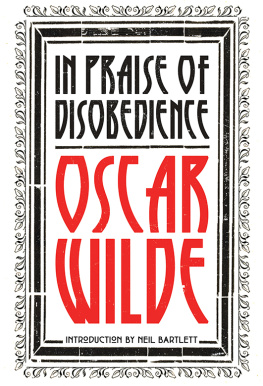
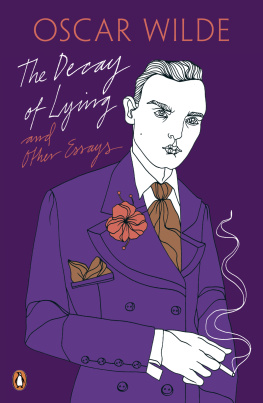
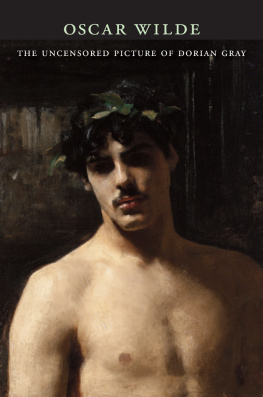
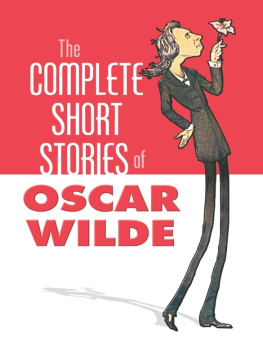
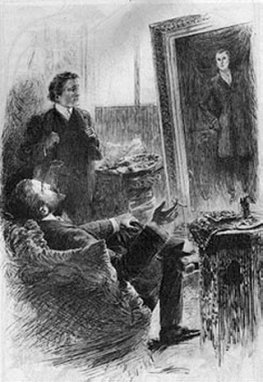
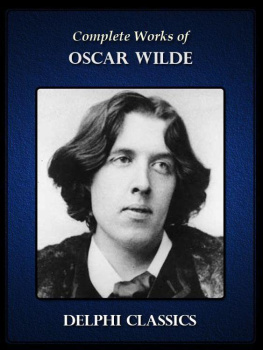

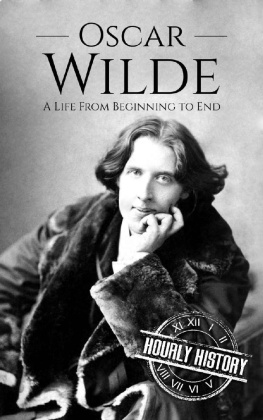

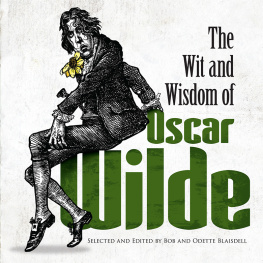
![Wilde Oscar - The secret life of Oscar Wilde: [an intimate biography]](/uploads/posts/book/228457/thumbs/wilde-oscar-the-secret-life-of-oscar-wilde-an.jpg)
